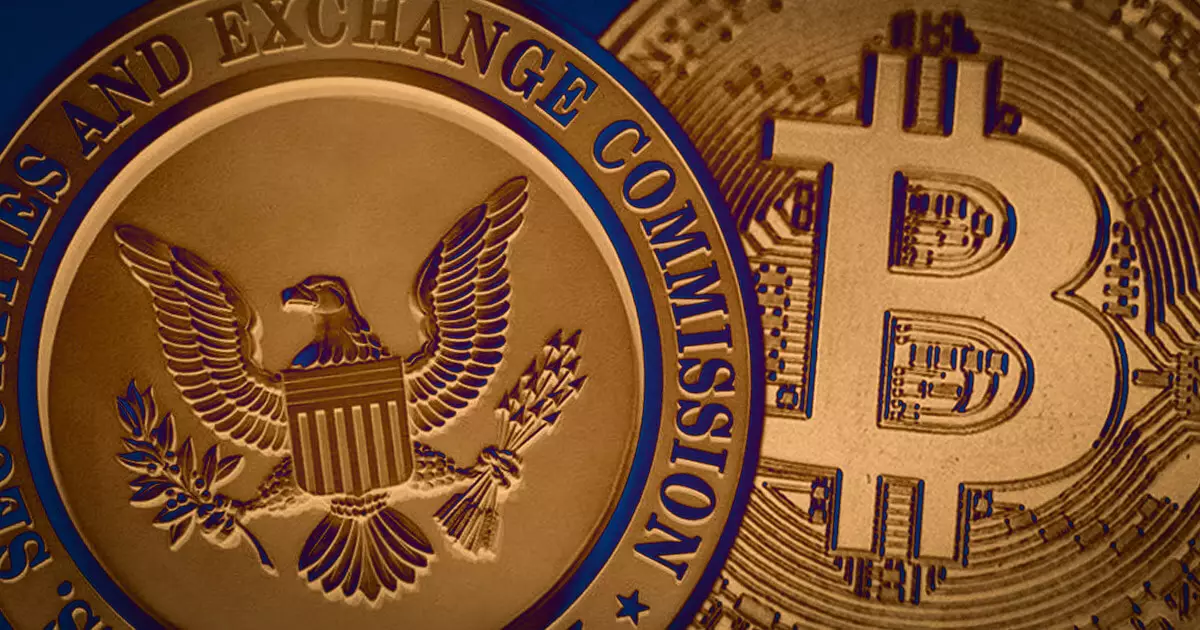The Securities and Exchange Commission (SEC) under the chairmanship of Gary Gensler is facing significant regulatory hurdles in approving a Bitcoin spot ETF application. Former SEC attorney John Reed Stark believes that these concerns revolve around the prevention of fraud and the protection of investors. However, what makes this situation even more complex is the growing partisan divide within the SEC, which starkly contrasts with the bipartisan consensus against cryptocurrencies in 2017 when Stark first began writing about the subject.
In recent years, the SEC’s approach to crypto regulation has become increasingly partisan. Former Republican-appointed SEC Chair Jay Clayton initiated a crypto crackdown that entailed extensive regulatory actions and staunch criticism against cryptocurrencies. This partisan divide within the SEC has manifested in various ways, creating obstacles for the approval of a Bitcoin spot ETF.
Moreover, the potential impact of the 2024 U.S. presidential election on the regulatory landscape cannot be overlooked. Stark predicts that if a Republican is elected, there may be a significant decrease in the SEC’s crypto-enforcement efforts. In this scenario, the SEC could adopt a more crypto-friendly attitude, potentially leading to the approval of a Bitcoin spot ETF and other favorable regulatory actions.
As an independent federal agency, the SEC is subject to leadership changes following presidential elections. In the event of a Republican victory, Hester Peirce, a well-known supporter of cryptocurrencies, could become the acting Chair. This transition could have a substantial impact on the SEC’s stance regarding cryptocurrencies. Peirce’s dissent towards most crypto-related SEC actions suggests that the agency may become more open to innovative approaches and less stringent regulations.
In a letter to the SEC, Better Markets raised several concerns regarding the proposed rule changes that would allow the listing and trading of spot Bitcoin ETFs. One major concern is manipulation in the Bitcoin market, with allegations of “wash trading” that create false volumes. The organization argues that the proposed surveillance-sharing agreements with trading platforms like Coinbase are insufficient to detect manipulation. This is particularly significant because Coinbase only represents 5% of global Bitcoin trading.
Another peril stems from the concentrated ownership of Bitcoin, with 50 miners controlling half of the mining capacity and the top 10,000 Bitcoin wallets owning 27% of all Bitcoins. This concentration of ownership poses a risk to market stability and investor confidence.
Stark emphasizes that the SEC’s decisions regarding Bitcoin ETFs and related regulatory issues will be influenced by a range of factors. These factors include internal politics within the SEC, the broader political landscape, and ongoing concerns about market manipulation and investor protection. These complex dynamics make it unlikely for a spot Bitcoin ETF to be approved unless there are significant changes in the regulatory landscape and leadership within the SEC.
The current SEC, led by chairman Gary Gensler, faces considerable challenges in approving a Bitcoin spot ETF application due to regulatory concerns surrounding fraud prevention and investor protection. These hurdles are further complicated by the growing partisan divide within the SEC, as well as the potential impact of the 2024 U.S. presidential election. Factors such as internal politics, the broader political landscape, and ongoing concerns about market manipulation and investor protection are expected to influence the SEC’s decisions. As it stands today, a spot Bitcoin ETF approval appears unlikely without substantial changes to the regulatory landscape and leadership within the SEC.


















